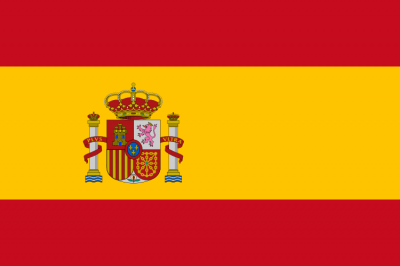The Politics of Anti-Austerity: The Spanish Elections and Participatory Democracy

The anti-austerity movement received another shot in the arm towards the end of May, with local elections in Spain following the Greek tune set by Syriza. The notable casualties of the night were the ruling Popular Party (PP) and the socialist PSOE, necessitating the construction of previously unseen coalitions. In an even more significant way, the gauntlet is being laid down towards traditionalists insistent on following the belt tightening approach that is strangling growth and encouraging continent-wide estrangement.
It is worth recalling what the night of regional elections heralded. Madrid and Barcelona fell to two individuals one could hardly have called political regulars. They were, in fact, bolts from the blue. Former communist and court judge Manuela Carmena nabbed Madrid, while Barcelona found a new mayoral contender in Ada Colau. While neither are formerly mayors as yet, with some wrangling to take place on the forming of power, the political scene has been more than just flipped.
As Ada Colau claimed, “This was the victory of David over Goliath.” Podemos had been the background sponsor, the guiding hand behind the various dissenting movements across the country. It was Podemos who was issuing murmurings of sweet indignation in the Syriza political stalls when Greece went to the polls. Now, Podemos was getting to play to the stalls of its own country.
Colau’s pedigree is a loud statement that shouts across the political barricades. Like that of Carmena, it is not steeped in politics so much as a social reckoning. It says much about Spanish, and more broadly speaking European politics, in its current state. It is the indignation of the pilfered wallet, the emptied reserves, the heartless, uncompromising foreclosures.
Colau’s own name was made on the activist Platform for Mortgage Victims, a militant grouping initiating sudden interventions at the precise moment when evictions would take place. The group’s existence owes its genesis to the bursting of the Spanish property bubble of 2008. Where there are arrears in payment, the spectre of foreclosing banks, and the general sense of banksterville in motion, she is expected to be there to frustrate it.
Carmena has already made her intentions clear, also promising a halt to the repossessions. She is acutely aware of symbolism in the urban setting of Madrid, where the smell of class is profound. With populist bravado, she has placed the exclusive Club de Campo Villa de Madrid in her firing line of social reform. The world of the Club is the world of atmospheric elitism, monarchical connections bristling with class pretension. The bastion, it would seem, is down for tearing.
Carmena has declared her intention to remove the fences and let the curious public in. She envisages accessible swimming pools, the conversion of the golf course to a farm school, and the transformation of the restaurants into a hospitality academy (City Lab, Jun 3).[1]
This has been greeted with the indignation typical of class war intensity. Those frequenting the club are feeling the pinch that populism can bring. A regular was quoted in El Mundo as saying that, “I won’t go back to Prada. One of the managers told me he was voting for [Manuela] Carmena.”
Both mayoral prospects are unrepentant. There is Prada, but then there are the political classes who have feathered their nests with conspicuous cynicism for decades. The response from Carmena and Colau are promised reductions in pay, starting with the office of mayor itself. Carmena insists on a reduction from €100 thousand to €45,402. Colau in Barcelona intends receiving an even humbler €37,000. Official cars are also been scrapped from the budget.
An urban revolution is most probably in the offing, one that promises more public housing, cheaper fuel, transit fares and lower costs of living. Economic fundamentalists will be snorting, but then again, their ignorance of the social condition has been so profound as to even criminal.
In the background of these victories was Podemos, that “we can” movement of Spain that is setting the ruling classes on edge inside and outside Spain. Not since the Spanish Civil War of the 1930s has this country been so relevant in its politics to the European scene, one torn by visions of capital and an assortment of “isms”. Podemos has become a front of participatory politics. Its enemy is austerity, its aim is the reduction of poverty; but its processes of engagement are far more significant.
It emphasises the role of the local political gathering, the use of citizen circles. It is deemed a “citizen’s initiative that aims to build democracy through citizen participation and popular unity.” As an explanatory note goes, “At its heart are over 1000 assemblies or ‘circles’, horizontally organised, locally-held meetings, in which people from across the political spectrum gather to discuss and decide how to turn their political frustration effective political action.”[2]
Ostensibly, the process involves extensive consultation, deliberation, engagement, voting and resolutions. Podemos is attempting, at the very least, to bring the political process back to the electoral fold, making the elector a deliberative participant. The estranged political classes, insulated by graft and anodyne political slogans, will be most worried.
Dr. Binoy Kampmark was a Commonwealth Scholar at Selwyn College, Cambridge. He lectures at RMIT University, Melbourne. Email: [email protected]
Notes
[1] http://www.citylab.com/
[2] https://podemoslondon.

